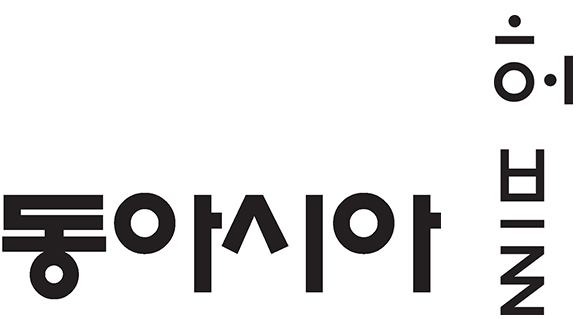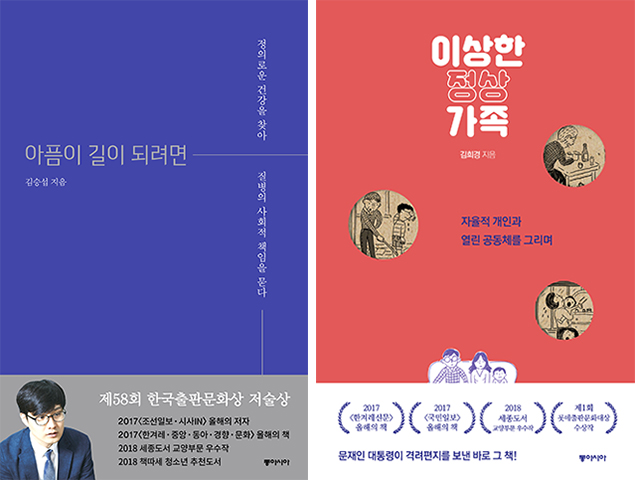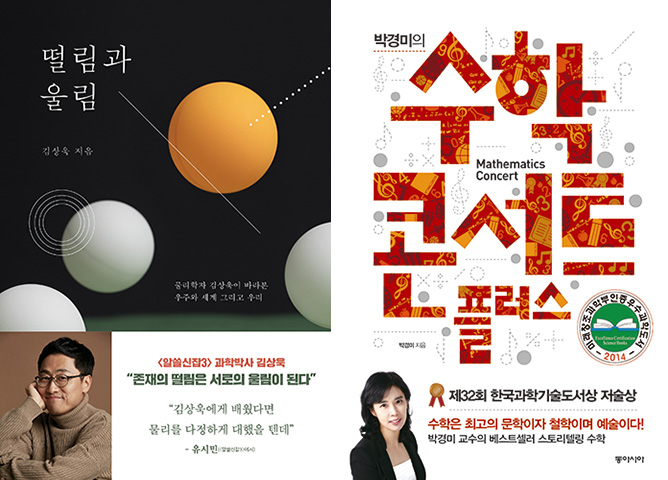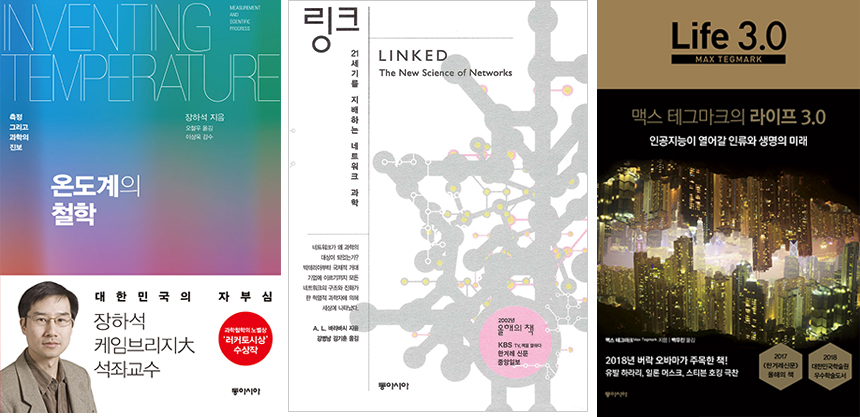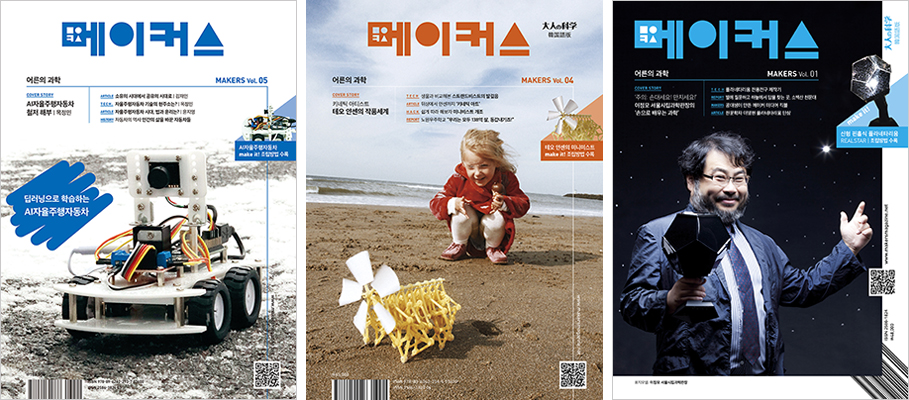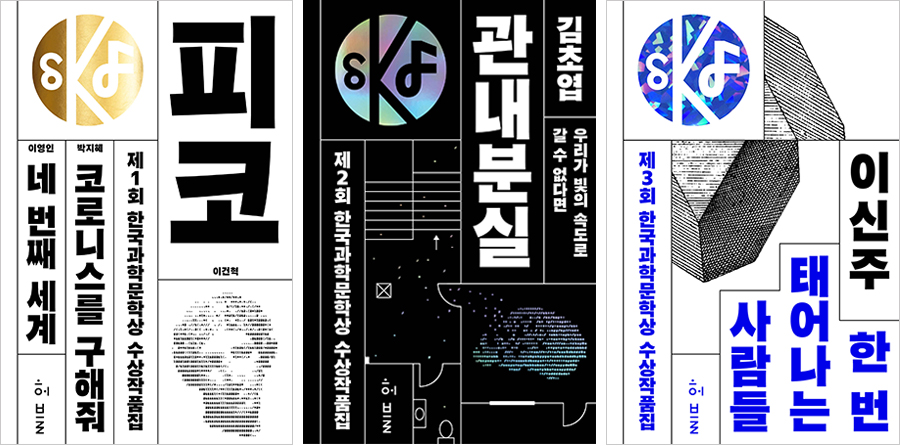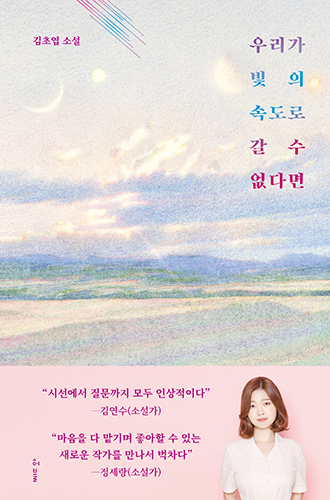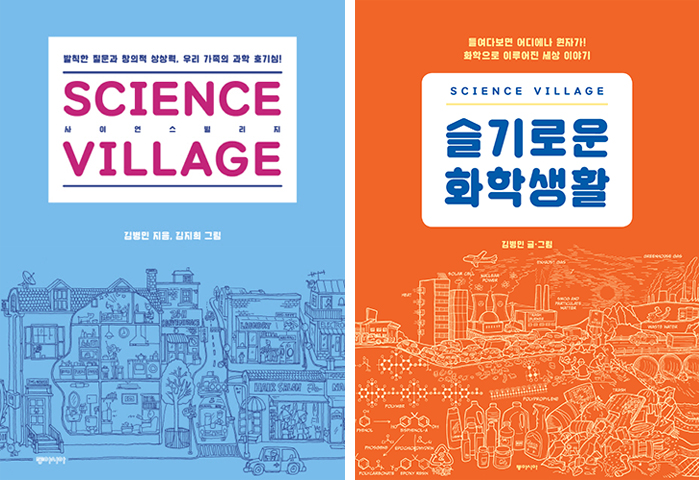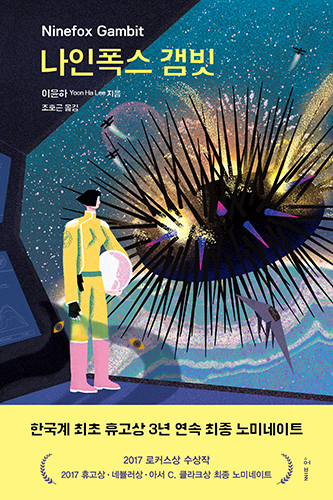|
East-Asia Publishing Aiming for the popularization of culture
2019.09.09
Cultural sciences, social sciences and natural sciences are all, when taken from a broad point of view, part of liberal arts. East-Asia Publishing Co. is a South Korean publisher that focuses on turning these fields of science into culture. Rather than just acting as a publishing archive, East-Asia Publishing says it is constantly working to set the agenda and create trends for the publishing industry by finding common ground with the public. The following article details the goals and plans for East-Asia Publishing where communication with readers is of utmost importance.
East-Asia Publishing, Hubble
Could you introduce East-Asia Publishing to our webzine readers?
Established in 1998, East-Asia Publishing has produced over 200 books in a variety of genres including natural sciences, cultural sciences, social sciences, history and philosophy. Many books from East-Asia Publishing have gone on to become bestsellers and receive attention from the public thanks to media attention and book reviews. East-Asia Publishing aims for the popularization of culture, especially the field of natural sciences, and we are continuing efforts to find common ground with the public from that aspect. We have managed to be included in annual book recommendation lists published by the media every year and on top of this, we are also very proud of our science magazine MAKERS that includes DIY kits, as well as our science fiction literature brand, Hubble.
East-Asia Publishing, created in 1998, aims for the popularization of culture,
Could we ask you about East-Asia Publishing's representative works that have been the most popular with readers?
Making Hope out of Sorrow: Asking Social Responsibility for Illnesses to Achieve Health,Strange Ideology of 'Normal' Family
The very first one that comes to mind would be Professor Kim Seung-sup's Making Hope out of Sorrow: Asking Social Responsibility for Illnesses to Achieve Health. This book was the talk of the media after it was published in 2017, selected as the book of the year and recognized at the Korea Book Awards. Through data, this book uses social dynamics to discover the social and political reasons behind diseases and also tells readers how social wounds like hate, discrimination and job insecurity can affect our bodies.
Tremolo and Echo, Mathematics Concert Plus
Aside these, we'd like to shed light on Tremolo and Echo by Professor Kim Sang-wook, who enjoys leading readers to think about the meaning of life, death and the world through a new lens with the language of physics. There is also Mathematics Concert Plus by Professor Park Kyung-mee, which shows math isn't just a subject learned through textbooks by introducing math in literature, science, music, art, history, society, sports and everyday life.
Inventing Temperature, Linked: The New Science of Networks, Life 3.0: Being Human in the Age of Artificial Intelligence
Among our translated works, there would be Inventing Temperature by Hasok Chang, Hans Rausing professor of history and philosophy of science at Cambridge University. Inventing Temperature sees science as a culture of its own, one that has exchanges with art and liberal arts like history and philosophy. The book provides a point of view that surpasses conventional educational means and pushes beyond existing limits of learning. Other translated books published through our company would be Albert-Laszlo's Linked: The New Science of Networks that addresses how networks are born and later evolve, and Max Tegmark's Life 3.0: Being Human in the Age of Artificial Intelligence that deals with humankind in the age of artificial intelligence and the future of life.
I guess it is not surprising to see many books about science among your publications and readers were as equally interested in books regarding science, it seems. What would be East-Asia Publishing's competitive edge when it comes to books with scientific content?
The reason we consistently maintain our interest in science is the fact that we view discourse on science as an extension of liberal arts studies or culture. Due to reductionism for the past 200 years, the paths of learning have diverged to a point where it is currently very complicated, but in ancient Greece or during the Age of the Renaissance, philosophers at the time were mathematicians, artists and scientists all at the same time. Ultimately, we believe science lives in the depths of basic culture carried within human minds. Especially, when communication and consilience are demanded between all educational systems today, we believe liberal arts viewed through a scientific lens is the basis of that culture. East-Asia Publishing's books have wide horizons that see science from a liberal arts or social science point of view. It is likely because of this that East-Asia Publishing was able to create so many bestsellers in a variety of different genres and receive much attention from the media and book reviewers.
Our company focuses on the here and now.
Are there any values the company specifically stresses when it comes to publishing books?
Our company focuses on the here and now. We don't chase trends but rather create them. This is why we choose not to solely focus on science but also humanities, society, philosophy, history and economics. This is always a difficult task, but we try to create books of quality that will appeal to the public.
The publishing company also has a magazine called MAKERS. You mentioned earlier that with the magazine comes an experience kit that helps readers understand the principles of science. It is safe to presume these kits aim to help readers experience basic scientific principles with things they can make with their hands in addition to reading about science. Could you tell us how you came about creating the magazine?
MAKERS series
As you said, MAKERS is a science kit magazine. Reading about science in books is incomparable to experiencing something with your own hands. By presenting a direct experience with the kit, MAKERS provides the joy of knowledge previously learned through books becoming one's own. From years ago, people have been seeking out opportunities to make things. This includes taking things apart, hacking them, creating things that didn't exist before and absorbing knowledge when it's needed. We took this idea of self-led learning and put it into our kits, into the process of digesting scientific principles. Some of our readers now even create unique works of their own with our kits, going beyond what's provided in the manual. MAKERS is currently popular among ordinary people who like to make things, as well as educational facilities like schools and cram schools.
East-Asia Publishing's imprint Hubble published its first book in 2016, 1st Korea SF Award: Collections of Award-Winning Stories. We are aware this was the first such award for science fiction in a decade. Please tell our readers how you came about working with science fiction and how you came to that decision to publish related books.
1st , 2nd, 3rd Korea SF Award: Collections of Award-Winning Stories
Like we said previously, East-Asia Publishing has led the field in turning science into a culture and tried to sway social discourse towards scientific thinking. Literary discourse changes based on the flow of the times, and we were able to sense that literature that focuses on scientific thinking would be the new trend. We also decided science fiction would be an excellent way for us to communicate to readers who love cultural science and connect them to us. Just as we were about to embark down this path we were contacted by MoneyToday, a South Korean media company that created the Korea SF Award, to publish Korea SF Award: Collections of Award-Winning Stories. It was just a great opportunity for us as we were thinking of creating a new science fiction brand, and we seized that opportunity.
Among Hubble's books, reviews for Kim Cho-yeop's If We Cannot Move at the Speed of Light have been stellar. Why do you think that has been so?
If We Cannot Move at the Speed of Light
One of the reasons why the book has become so popular, we think, is the atmosphere of the story. Kim's books have this lonely but beautiful atmosphere to them, and this seems to flow through the seven short stories in her book. The characters that live in Kim's literary world are beautiful and pure, but they do not stay naive. They face reality when met with sadness and pain and move forward. Kim's book seems to draw readers in as its characters go back and forth between weakness and strength, insiders and outsiders, disabled and non-disabled. Also, the world created with Kim's science fiction-minded imagination is wonderful enough, but it also has something missing. We think this actually reminds readers of the world today when looking at that world created in the future. Above anything else, it is a novel that has power, and that is likely to have helped the book draw readers, surpassing any genre-related boundaries.
Considering the tough times the genre has had to endure,
South Korea's literature market is growing smaller, but Hubble decided to jump into that market at this time. What is Hubble's forecast for South Korea's science fiction market?
It's true there are fewer readers who read literary fiction. However, we feel there is an empty space in terms of entertainment, which only literature can fill, so we don't think readers have left us forever. Rather, we believe readers are moving from literary fiction to genre fiction steadily. South Korea's literary fiction is fun for sure, but we think there is now a gap between what readers want to read for fun and the fun that literary fiction has. And readers who were looking for books to fill that gap are filling it with science fiction, which is close to literary fiction even among genre fiction books. For the past decade or so, readers have tested existing science fiction. Thankfully, the genre has developed in South Korea on the whole and considering the tough times the genre has had to endure, we feel the science fiction market has enough potential. And also, Hubble's hopes are high science fiction will act as a new driving force for South Korea's literary market.
Are there any books you feel should be introduced to foreign readers outside South Korea?
Science Village, Science Village: A Wish Chemical Life
We recommend Science Village and Science Village: A Wish Chemical Life. These books are in the form of stories a father is telling his son. In the first book, the two go beyond the boundaries of academic physics, chemistry and earth science and question things around them and learn. They also talk, imagine things and find understanding between themselves. By wandering through places in their neighborhood like other houses, a school, supermarket and movie theater, they find questions and grow internally by finding answers to those questions. Science Village is a place where everyone - adults, children, parents - can imagine and ask questions. The second book is about chemistry. Chemical substances are things that can affect not only our lives but the future of mankind. To give up on learning about these substances is to give up on your responsibility towards yourself, on your future and on mankind in a certain meaning. This book gives readers the ability to look at their whereabouts with the knowledge of chemistry in order to live this day and age wisely.
Can you tell us what the future plans and goals of East-Asia Publishing and Hubble are?
East-Asia Publishing has lots of expertise regarding disseminating information to as many people as possible through various means, like the media and online bookstores. We have had continuous success with informing the public and our readers about our books through book reviews in the media and promotion efforts on online bookstore websites. Currently, scientific thinking, which we can say is this age's discourse, stands at the center of liberal arts thinking. Our strength is to send that message to the public and communicate with them. And we vow to continue doing that, as we have, at the head of the pack.
Ninefox Gambit
Hubble has much interest in science fiction works that have comparatively less public interest. We wish to become a steady force of growth for South Korea's science fiction market by discovering new science fiction writers through the Korea SF Awards. This shouldn't end as a one-time event either - we aim to hone our efforts in fostering young talent who can continue writing books, like Kim Cho-yeop, who received much attention from readers in 2019. This doesn't mean our interests are confined to the physical boundaries of our country. We plan to continue our search for wonderful works of writing inside and outside South Korea that have yet to be recognized, like Yoon Ha Lee's Ninefox Gambit. By introducing these types of high-quality science fiction books and making them into bestsellers we wish to erase the border between literary fiction and fiction writing, getting rid of literature 'minorities'.
Arranged by Choi Hyo-jun
|
Pre Megazine
-

Jakkajungsin Publishing Co.
VOL.69
2024.04 -

Writer Yun Jung-Eun
VOL.69
2024.04 -

Jumping Books Publishing House
VOL.68
2024.03 -

Writer Kim Hwa-Jin
VOL.68
2024.03 -

Publisher Hyohyung
VOL.67
2024.02 -

Writer Minha
VOL.67
2024.02 -

Almond Publishing
VOL.66
2024.01 -

Writer Kwon Jung-Min
VOL.66
2024.01 -

Hakgojae Publishers
VOL.65
2023.12 -

Writer Kim Hye-Jung
VOL.65
2023.12 -

Eidos Publishing House
VOL.64
2023.11 -

Writer Hwang In-Chan
VOL.64
2023.11 -

Munhakdongne
VOL.63
2023.10 -

Writer Chang Kang-myoung
VOL.63
2023.10 -

Happywell Publishing
VOL.62
2023.09 -

Writer Baik Soulinne
VOL.62
2023.09 -

Dasan Contents Group (Dasan Books)
VOL.61
2023.08 -

Writer Lim Kyoung-Sun
VOL.61
2023.08 -

SpringSunshine Publishing Co.
VOL.60
2023.07 -

Writer Lee Kyung-Hye
VOL.60
2023.07 -

Human Cube
VOL.59
2023.06 -

Doctor Jeong Jae-Seung
VOL.59
2023.06 -

Anonbooks
VOL.58
2023.05 -

Writer Son Bo-Mi
VOL.58
2023.05 -

Namhaebomnal
VOL.57
2023.04 -

Writer Kim Bo-Young
VOL.57
2023.04 -

Hugo Publishing
VOL.56
2023.03 -

Writer Cho Kwang-Hee
VOL.56
2023.03 -

Balgeunmirae Publishing Co.
VOL.55
2023.02 -

Writer Lee Byung-Ryul
VOL.55
2023.02 -

Wisdom House, Inc
VOL.54
2023.01 -

Writer Jeong Jia
VOL.54
2023.01 -

Humanitas
VOL.53
2022.12 -

Writer Kim Yeon-Su
VOL.53
2022.12 -

Songsongbooks
VOL.52
2022.11 -

Writer Eun Hee-Kyung
VOL.52
2022.11 -

Bombom Publishing Co.
VOL.51
2022.10 -

Writer Jiwon Yu
VOL.51
2022.10 -

Hangilsa Publishing Co., Ltd.
VOL.50
2022.09 -

Writer Kim Won-Young
VOL.50
2022.09 -

Moksu Publishing Company
VOL.49
2022.08 -

Writer Yoo Sun-Kyong
VOL.49
2022.08 -

Next Wave
VOL.48
2022.07 -

Writer Park Sang-Young
VOL.48
2022.07 -

A Thousand Hopes
VOL.47
2022.06 -

Writer Bora Chung
VOL.47
2022.06 -

Woongjin ThinkBig
VOL.46
2022.05 -

Dr. Oh Eun-Young
VOL.46
2022.05 -

JECHEOLSO Publishing House
VOL.45
2022.04 -

Writer Jang Ryu-Jin
VOL.45
2022.04 -

Changbi Publishers
VOL.44
2022.03 -

Writer Kim Ho-Yeon
VOL.44
2022.03 -

Mati Books
VOL.43
2022.02 -

Writer Lee Kkoch-Nim
VOL.43
2022.02 -

Picturebook Gongjackso
VOL.42
2022.01 -

Writer Kim Sang-Wook
VOL.42
2022.01 -

Writer So-yeon Park
VOL.42
2022.01 -

Writer Yoo Eun sil
VOL.42
2022.01 -

Kungree Press
VOL.41
2021.12 -

Writer Kim Lily
VOL.41
2021.12 -

Writer Park Yeon-jun
VOL.41
2021.12 -

Writer Yi Hyeon
VOL.41
2021.12 -

A deeper world told through picture books 'Iyagikot Publishing (Story Flower)'
VOL.12
2019.06 -

Author Jeon Min-hee
VOL.12
2019.06 -

Illustrator Kim Hwan-Young
VOL.13
2019.07 -

Travelers sailing through the sea of knowledge - 'Across Publishing Group Inc.'
VOL.13
2019.07 -

Genre Novel Publisher 'Arzak Livres'
VOL.14
2019.08 -

Author Lee Yong-han
VOL.14
2019.08 -

Wookwan Sunim
VOL.15
2019.09 -

East-Asia Publishing
VOL.15
2019.09 -

Author Jo Jung-rae
VOL.16
2019.10 -

EunHaeng NaMu Publishing
VOL.16
2019.10 -

Writer Heo Kyo bum
VOL.40
2021.11 -

Writer Kim So-Young
VOL.40
2021.11 -

Author-illustrator Kim Sang Keun
VOL.40
2021.11 -

ACHIMDAL BOOKS
VOL.40
2021.11 -

Author Kang Gyeong-su
VOL.17
2019.11 -

Moonji Publishing Belongs to the Literary Community
VOL.17
2019.11 -

Author Kim Yun-jeong
VOL.18
2019.12 -

I-Seum
VOL.18
2019.12 -

Kim Cho-Yeop
VOL.19
2020.02 -

Creating a window into the future with books
VOL.19
2020.02 -

Author Serang Chung
VOL.20
2020.03 -

Hey Uhm
VOL.20
2020.03 -

Writer Lim Hong-Tek
VOL.21
2020.04 -

BIR
VOL.21
2020.04 -

Writer Song Mikyoung
VOL.39
2021.10 -

Author-illustrator Kim Dong Su
VOL.39
2021.10 -

Writer Lee Seula
VOL.39
2021.10 -

Tabi Books
VOL.39
2021.10 -

Writer Kim Soo-hyun
VOL.38
2021.09 -

Author-illustrator Lee Myoung Ae
VOL.38
2021.09 -

Writer Hwang Sunmi
VOL.38
2021.09 -

Kidari Publishing Co.
VOL.38
2021.09 -

Writer Sohn Won-Pyung
VOL.22
2020.05 -

Woods of Mind's Books
VOL.22
2020.05 -

Writer Heungeul
VOL.23
2020.06 -

Gloyeon
VOL.23
2020.06 -

Maumsanchaek
VOL.24
2020.07 -

Winners of the 2021 Bologna Ragazzi Award
VOL.37
2021.08 -

Picture book artist Lee Suzy
VOL.37
2021.08 -

Author-illustrator Yi Gee Eun
VOL.37
2021.08 -

Hubble
VOL.37
2021.08 -

Writer Baek Se-Hee
VOL.25
2020.08 -

Bearbooks Inc.
VOL.25
2020.08 -

Author Baek Hee-Na
VOL.26
2020.09 -

Yuksabipyoungsa
VOL.26
2020.09 -

Writer Kang Hwa-Gil
VOL.27
2020.10 -

Kinderland (Bandal)
VOL.27
2020.10 -

Writer Ha wann
VOL.36
2021.07 -

Author-illustrator Myung Soojung
VOL.36
2021.07 -

Writer Jung Yeo-Wool
VOL.36
2021.07 -

Publisher EcoLivres
VOL.36
2021.07 -

Writer Lee Geumi
VOL.28
2020.11 -

Sakyejul
VOL.28
2020.11 -

Writer Kim Keum-Hee
VOL.29
2020.12 -

Geulhangari
VOL.29
2020.12 -

Writer Cheon Seon-Ran
VOL.30
2021.01 -

Hyang Publishing House
VOL.30
2021.01 -

Writer Lee Hee-Young
VOL.31
2021.02 -

Sanzini
VOL.31
2021.02 -

Publisher Prunsoop
VOL.32
2021.03 -

Writer Sim Yun-Kyung
VOL.32
2021.03 -

Hanbit Media
VOL.35
2021.06 -

Hyeonamsa
VOL.33
2021.04 -

Author-illustrator Noh Inkyung
VOL.33
2021.04 -

Writer Cho Won-Jae
VOL.35
2021.06 -

Writer Kim Jung-Mi
VOL.34
2021.05 -

Safehouse Inc.
VOL.34
2021.05


